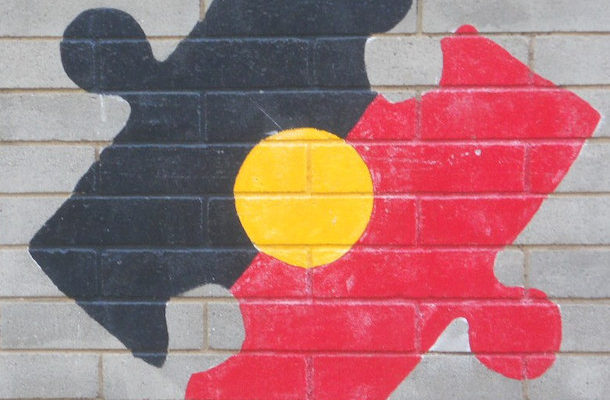It’s time for an Indigenous Health Purchasing Authority

For governments indigenous health continues to be an intractable policy problem. Author of ‘Indigeneity – a politics of potential’ Dominic O’Sullivan considers the proposal of an Indigenous Health Purchasing Authority.
For governments, indigenous health is an intractable policy problem, even though there are numerous examples of successful indigenous led health initiatives.
Indigenous health outcomes are also relatively poor in neo-colonial societies like Canada and New Zealand. However, they are not as pronounced in those countries which suggests that the Australian policy crisis is neither inevitable nor immutable. The principal gap that needs to be closed is not epidemiological, but political.
Closing the gap in political disadvantage is the more important precursor to an inclusive and equitable liberal democratic society. It requires significant changes to how and by whom policy is made; mechanisms for allowing indigenous peoples to identify and replicate successful public policy as a liberal democratic imperative. The role of culture in health outcomes is also well understood.
So it is worth re-visiting the Rudd Government’s (2007-2010) National Health and Hospitals Reform Commission proposal to establish an Indigenous Health Purchasing Authority. The basic principle is that an indigenous led agency, rather than the non-indigenous health bureaucracy, would purchase services from providers such as Aboriginal Community Controlled Health Organisations. People with proven expertise would be making decisions about the services to provide and by whom they should be provided. Expertise on what works and why would become institutionalised. The foundation would be established for informed decisions about the sustainability and replicability of successful policy.
As an indigenous agency, the Purchasing Authority would help to institutionalise an accountability to indigenous people that does not presently exist. The Authority would provide the political system with one way of recognising the right to self-determination. It is a significant but not a particularly radical or illiberal proposal. Australia has accepted the aspirations of the United Nations’ Declaration on the Rights of Indigenous Peoples including that:
Indigenous peoples have the right to determine and develop priorities and strategies for exercising their right to development. In particular, indigenous peoples have the right to be actively involved in developing and determining health, housing and other economic and social programmes affecting them and, as far as possible, to administer such programmes through their own institutions. (Article 23).
The potential cultural shift in health policy-making and implementation is significant. There would be a much-reduced political gap between decision-making and implementation. There would be no cultural gap.
In recent years ‘consultation’ has entered the policy process. The point is to set aside deliberate and systematic indigenous exclusion. Consultation presumes that policy should be ‘made with’ rather than ‘done to’ indigenous peoples. However, if the citizen is as Aristotle put it ‘one who deliberates’, one ought to be contributing to policy-making in one’s own right and with substantive equality; with equal capacity to influence outcomes. Consultation, then, legitimises a political gap.
An Indigenous Health Purchasing Authority would not be ‘consulted with’ by the state. Instead, it would be an indigenous part of the state, an example of what the Canadian and New Zealand scholars, Augie Fleras and Roger Maaka call ‘Indigenising Policymaking by Mainstreaming Indigeneity‘. An Authority’s decisions would be based on indigenous people’s conceptualisation of their own needs and aspirations. They would be decisions of indigenous policy participants; deliberating citizens, not the subjects of consultation.
Debates about an indigenous ‘voice to parliament’, or guaranteed parliamentary representation are important. They may help democracy work better; help to achieve the liberal potential for one citizen, one political voice of equal value. However, substantive citizenship is a deeper concept still. Political authority, as the substance of citizenship, is not found in parliaments alone but at every level of the bureaucracy.
Australia’s liberal democratic system enjoys greater inclusive potential than many care to admit. The question of what it means, in practical political terms, for all people to influence equally the affairs of the Commonwealth is not well debated. The Prime Minister’s quick dismissal of the Uluru Statement from the Heart and its claim for an indigenous voice to parliament was a missed opportunity to consider a more robust and meaningful conception of citizenship.
An indigenous voice to parliament would ensure that the decisions of bodies such as an Indigenous Health Purchasing Authority would be contestable, scrutinised and accountable. A transparency gap would be narrowed in a policy system not much interested in indigenous peoples needs and aspirations; a system that fails to make effective indigenous policy largely because it lacks the political will.
The political gap to close is significant. However, liberal democracy does have the capacity to close it should there be the political determination. Closing the political gap is a subject to which extraordinary indigenous thought has been given. Yet there remains a democratic deficit in a system whose institutions are equipped only to ‘consult’ and often very poorly. Liberal democracy can do better by revisiting an Indigenous Health Purchasing Authority. Inclusion is a strong and respectful path to better policy outcomes.

Dominic O’Sullivan is Professor of Political Science at Charles Sturt University and Adjunct Professor in the Centre for Maori Health Research at the University of Auckland University of Technology. His recent publications include ‘We Are All Here to Stay’: citizenship, sovereignty and the UN Declaration on the Rights of Indigenous Peoples and Sharing the Sovereign: Recognition, Treaties and the State.














